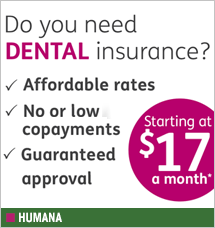Dollar Sense
Potpourri: Stuff You Need to Know to Protect Yourself and Your Money - Answers to Medicare Questions

Do you have questions about Medicare? If so, you’re not alone. To provide easy answers, the Medicare Rights Center has launched an interactive online tool you can use to ask your questions. Medicare Interactive, or Medicareinteractive.org. It’s divided into topics that are easy to use so you can find detailed answers. Here’s an example from the Medicare Interactive site:
When does Medicare cover eye care?
Medicare will only pay for routine eye care in the following specific circumstances:
- If you have diabetes, Medicare will pay for an eye exam once every 12 months to check for eye disease due to the condition;
- If you are at high risk for glaucoma Medicare will cover an eye exam by a state-authorized eye doctor once every 12 months. You are considered to be at high risk if you:
- have diabetes;
- have a family history of glaucoma;
- are African American and age 50 or older; or
- are Hispanic and age 65 or older.
Note, this is only a partial answer. You can read more on this topic by logging onto the interactive site. http://www.medicareinteractive.org/get-answers/medicare-covered-services/limited-coverage-vision-and-dental/when-does-medicare-cover-eye-care.
Using the site requires registration, but does not ask for personal information. It also offers courses that you can take to increase your knowledge, as well as quizzes. However, the courses are not free. Also, when you sign up to use Medicare Interactive, they’ll send you a free tip sheet called: “10 Tips for Making the Most of Your Medicare Coverage.”
Almost Ready to Retire? Check into Medigap
The Kaiser Family Foundation says that the average person on Medicare will have to pay more than $4,700 per year, out of pocket. For a married couple, that’s $9,400. About 42% of that cost goes to pay insurance premiums. The rest is paid out in medical supplies, prescription drugs, dental and eye care, and for some, long-term facility costs.
Having a private medigap policy will help pay for some of your healthcare costs not covered by Medicare (though generally not long-term care). Here are some important points to know about medigap:
- To purchase this coverage you must have Medicare Parts A and B.
- The best time to purchase medigap is within the first six months you are 65 years old and enrolled in Medicare Part B. Enrolling at this time will allow you to bypass the medical underwriting process. It also allows people with existing health conditions to buy policies at the same price as people in good health.
- Another option is Medicare Part C, which is similar to a medigap policy, and is administered by Medicare.
- A separate medigap policy must be purchased for each spouse.
- Medigap is of particular importance if you intend to travel outside the United States, since Medicare offers little coverage outside this country. Some medigap policies (plans C through J) offer travel emergency coverage. These policies come with a deductible of $250 and a $50,000 lifetime maximum. Should you need emergency care while traveling, this type of plan pays for 80% of your treatment and cover the first 60 days of your trip.
If you do not have a medigap policy but do have health insurance through a private plan (such as Medicare Advantage) check with your plan before traveling outside the country. You may be able to purchase a policy specifically to cover you during this travel, including if you require an evacuation.
Are You a Victim of Fat Fingers?
Consumer Reports warns of a scam with a funny name: Fat Finger Fraud. It happens when callers accidentally dial a slightly wrong number. Scammers buy numbers that are close to commonly called numbers, for the purpose of snagging people and tricking them into turning over credit or debit card numbers.
How does it work? The fake number is usually one or two digits off from a legitimate number, such as a credit card issuer. I’ve done this myself. For example, I might intend to dial a number that actually starts with 888, but knowing that it is toll-free, I automatically dial 800 (after all those tiny numbers on the back of the credit card are hard to read). A recorded voice answers, but instead of the expected greeting, something doesn’t seem quite right.
A cheery voice comes on the line that does not name the company I’ve called, and proceeds to congratulate me on qualifying for a prize or special deal, or ask me to provide my valuable opinions for a survey. All I have to do is give them a little bit of information, like my credit card number.
At least 30 commonly called numbers have been targeted, including the IRS, the Social Security Administration, and the Veterans Administration.
How Consumers Can Protect Themselves from Fat Finger Fraud
- Obviously, double-check before you dial. If your phone displays the number you have dialed, compare it to the number you intended to dial.
- Know your toll-free codes. Don’t do what I did and assume if it’s toll-free, it must start with 800. Toll-free numbers may begin with 800, 888, or 866.
- Don’t hesitate to hang up. If something doesn’t sound right, for example, if the voice on the other end does not mention the name of the company you intended to call… hang up. If the voice tells you you’ve qualified for a free cruise or other prize, do not respond verbally at all, just hang up.
- As always, guard your personal information. Always be suspicious of anyone who asks for your Social Security number, birth date, or other personal information.
- Pay close attention to your phone bills. Check to make sure you aren’t being charged for any services or long distance calls you didn’t authorize or make.
- Call it in. If you see anything suspicious report it to your phone company immediately. Also consider filing a complaint with the Federal Trade Commission at ftc.gov, or the Federal Communications Commission at fcc.gov, or your state’s office of the attorney general which you can find at naag.org.
Fooled Me Twice
It’s bad enough when older consumers are targeted for scams that strip them of much needed funds. In particular, says the Consumer Finance Protection Bureau (CFPB) fraudulent money-making schemes, bogus timeshare investments, and in-home business opportunities. But now the CFPB says they’re being hit with complaints that the same victims are being targeted all over again. This time, the cons claim to be from an asset recovery firm that helps fraud victims get back some of the money that was stolen from them.
Here’s how this works:
The so-called asset recovery company claims to have expertise in helping victims recover their lost funds. They obtain a list of older consumers who’ve been defrauded and reach out to them, commiserating with them over their losses. Then they promise to help get back the stolen money. Of course, there’s an upfront fee, of several hundred to thousands of dollars.
Once the fee is paid, the company may perform services, but nothing the consumer couldn’t have done on his or her own.
Here’s an example given by the CFPB:
Suppose a senior is scammed into a fraudulent money-making scheme, and paid for it with a credit card. After collecting an upfront fee, the asset recovery company files a dispute with the credit card company. They may also file a complaint with an agency such as the CFPB, that processes complaints at no charge. In other words, the asset recovery company charges a small fortune to do what the consumer could’ve done him or herself, for free.
Even worse, the scam artists at the asset recovery company often do a lousy job of filing those free claims. They don’t follow up, or they wait too long and file claims that are no longer valid, or fail to submit supporting documentation. Bottom line, they feign sympathy with victims and then victimize them again, leaving them even worse off than before.
Here are warning signs to watch for:
You must pay upfront. Don’t pay for any part of service that hasn’t been performed.
“Special access.” The company claims to have insider information, special access and connections. Again, the services they will perform are free to the public and easy to use. There is no “special access.”
Isolation. They discourage you from seeking information, support, or advice from others before paying them.
Teresa Ambord is a former accountant and Enrolled Agent with the IRS. Now she writes full time from her home, mostly for business, and about family when the inspiration strikes.



























































